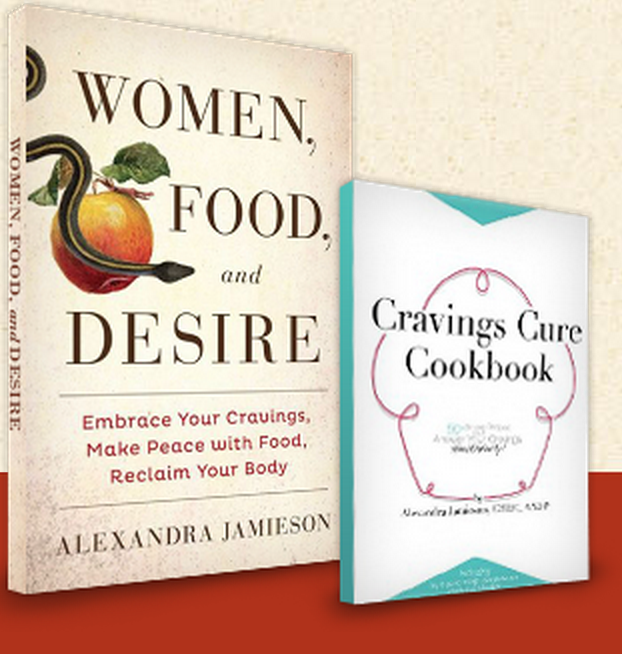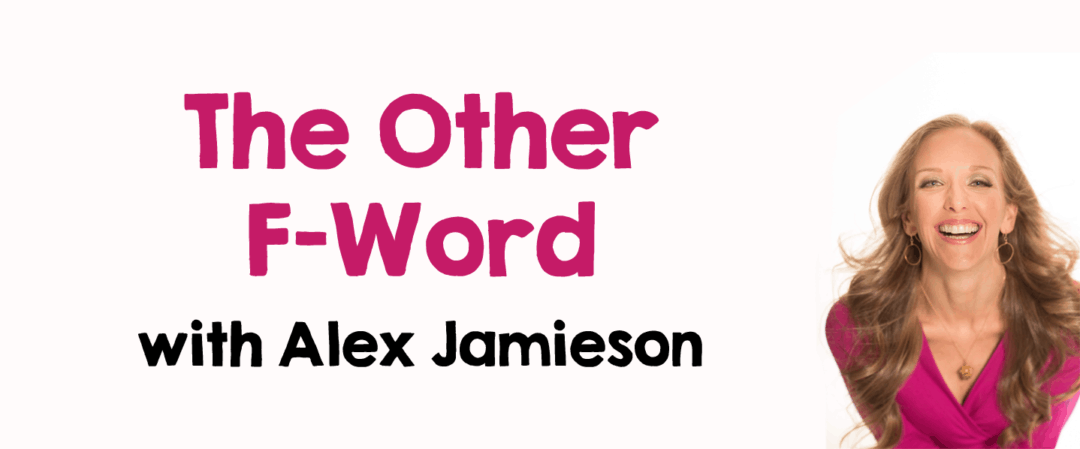Our friend Alexandra Jamieson, will soon be releasing her new book, but before we share, we wanted to introduce you to her first. She was kind enough to put together this article for you, we know you'll enjoy. Take a minute to get acquainted, and learn about why your relationship with your food is so important.

I’m a big believer that aside from providing us with the nutritional fuel we need to function at our best, food should make us happy. That’s right: food should delight us, ignite us, and make us feel good. Really, really good.
But for most of us, the way we approach food does just the opposite. It makes us feel fat. It makes us feel ashamed. It makes us feel ugly and undesirable. It makes us feel wrong and unwelcome in our own bodies. And when we lose our knowledge that we have power over our relationship to it, it allows us to hide out from life.
Food, in our current culture, has become the other F-word; most of our interactions with it fill us with shame, guilt, and discomfort. When we eat, and especially when we overeat or eat things we know are bad for us, we tend to gobble our food as though it’s some kind of necessary evil that needs to be gotten through as swiftly as possible. Eating fast is the most culturally acceptable way to do it (why else do they call it “fast food”?).
But our relationship with food isn’t meant to be so “fast” and furtive. What if we were to let ourselves slow down? What if we really aimed to have a relationship with food that honored how complex and ever-changing our needs and our lives are? What if we decided that we would approach our relationship to food from a place of honor and awareness rather than one of shame and guilt? What if we committed to a practice of eating mindfully and actually tasting—and experiencing—each bite of food we take? What if we cared enough about our bodies to want to be really present whenever we fed them?
These are the questions we need to ask ourselves about our relationship to food if we’re ever going to make radical adjustments to the way we eat. We need to shine our awareness on how our bodies feel around and with food and how we’d like them to feel. When we do this, we realize we are not powerless over food, and then we can begin to look at our eating habits with curiosity. Only then can we change our relationship with food.
But there’s more. This isn’t the only relationship crying out for attention. There are other cravings we need to meet, too. What about our desires for meaningful work, liberating play, satisfying sex, companionship, intellectual stimulation, rest? All of these yearnings, just like those for food, should be met with deep, abiding self-respect and playful curiosity. Otherwise, we’ll stay trapped by our cravings, which keep us too distracted to take notice of our deepest, most truthful desires.
When we aren’t attentive to how we’re feeling, our reactions tend to be extreme. This is when we let our cravings control us. And when we blindly follow our cravings, without asking what they mean, it’s like applying a blunt hammer when what’s required is a feather’s touch. When we don’t listen to the message behind our cravings, we lose all sense of nuance and measure—all of the qualities that are at the heart of female desire. When we’re at a craving’s mercy, it’s impossible to really listen to ourselves, to hear what we really need.
Why We Hide Behind Our Cravings
Chocoholics will describe a favorite cake in rapturous detail. Cheese lovers moan in ecstasy when recalling warm Brie. Our favorite food cravings can put us in an incredibly heightened state of pleasure because they have the power to activate our senses in a way that is tough to match. When we indulge in what we love best, we can experience full mind-body rapture. But there can be too much of a good thing, as all of us who’ve felt crippled by our cravings know.
Without really knowing that we’re even doing it, many of us tend to disappear into our cravings. When we’re battling the pull of the artisanal ice cream or the luscious designer coffee drink, we relinquish our attention to how we are actually feeling. Cravings are so easy to hide out in because they distance us from our ability to see beyond the immediate hit of satisfaction, and they set us up to engage in habits that keep us down and out of touch with ourselves. Then the cycle of craving takes over.
If we’re busily distracted, riding the carnival ride of cravings, we don’t have to do the work of looking after ourselves. That’s the unspoken benefit of hiding out in the craving cave: it keeps us from having to engage in active, meaningful self-care.
But there are ways to break this cycle, to get out from under the spell of cravings. And in my book, Women, Food & Desire we’ll explore many ways of finding the courage to pause, stand free and clear, and think differently about what will bring you lasting pleasure. You will discover the ability to live happily in your body, just as it is right now. It’s time to find out what you really want, what you truly desire.

If you're interested in hearing more from Alex, her new book will be available on January 6th! However, in the meantime she is offering her Cravings Cure Cookbook absolutely free.











